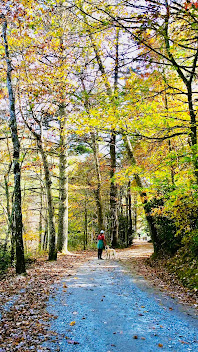Published Oct. 2020; written by Marlene Osteen
Deena Bouknight’s novel Playing Guy traces the trajectories of a pair of broken souls in a small Southern town.
Deena Bouknight’s second novel, Playing Guy offers a distinctively
humanistic Southern fable – a tale told with irony and pathos, it’s a story of
redemption.
The novel has some of the heightened quality that has come to be known as Southern Gothic, and the notion of the South as a place where paradoxes prevail – a Christian tale where much of the action (and even the book cover) takes place in church and yet one where the protagonist considers himself not much of a Christian at all, a place where people sit around telling tales, whose “tragic” history somehow binds them together.
Playing Guy develops the story of Guy Olivier Rhett Butt. “Named to be a movie star, his parents bestowed on him a first and few middle names to choose from when he did get to Hollywood.”
The book
pivots around the friendship of Guy and Maddie Walker- who shoulder to shoulder
take on their small-town of Wynee, South Carolina – a camaraderie begun in
early school, and solidified by the commonality of diminished parenting.
There is
Maddie, the motherless child, raised by a workaholic Doc Dad and her take
no-prisoners nanny, Squash, and Guy, the son of a father tormented by demons
and self-doubt and an eccentric mother, both of whom are rejected by the
townsfolk for their Northern roots and decidedly quirky behavior.
With
easy charm, and spectacular good looks, Guy easily ascends to Hollywood
stardom. But Guy himself is a cautionary tale, for other hardships await – For
what is easily gained can be as easily lost.
Those
same themes surface in the opening scene when Guy is first seen in the Wynee
hospital being treated for serious injuries that could shorten his career and
maybe his life. Bouknight combines her
signature mix of literary skills –
agility at developing depth of character and sense of place – learned from the
masters, Wolfe, Thoreau and Wharton, to draw us into the tale of Guy and
Maddie.
As the
author says “My goal is that when the reader finishes they know the characters
and place so well they are emotionally involved in their story.” The intellectual energy of the novel arises
from a larger mystery, that both flows throughout the telling and is embedded
in the moral of redemption, of the good that oftentimes comes from bad that
yield lifetime altering shifts. As in the case of Guy and the road he navigates
towards self-realization, from narcissist to beneficent; of the love that
Maddie discovers with Guy’s parents.
In all, Playing Guy is so polished, well written, and compelling that the reader will want to return to their story and to
Bouknight’s upcoming novel, Light Fracture, a historical novel about the 1886 earthquake in Charleston, South Carolina.







